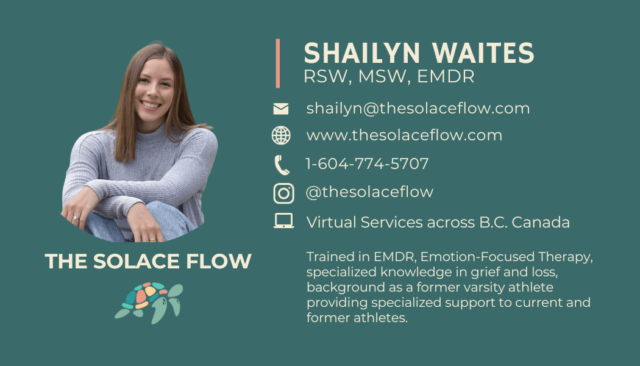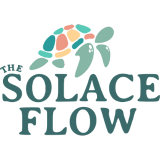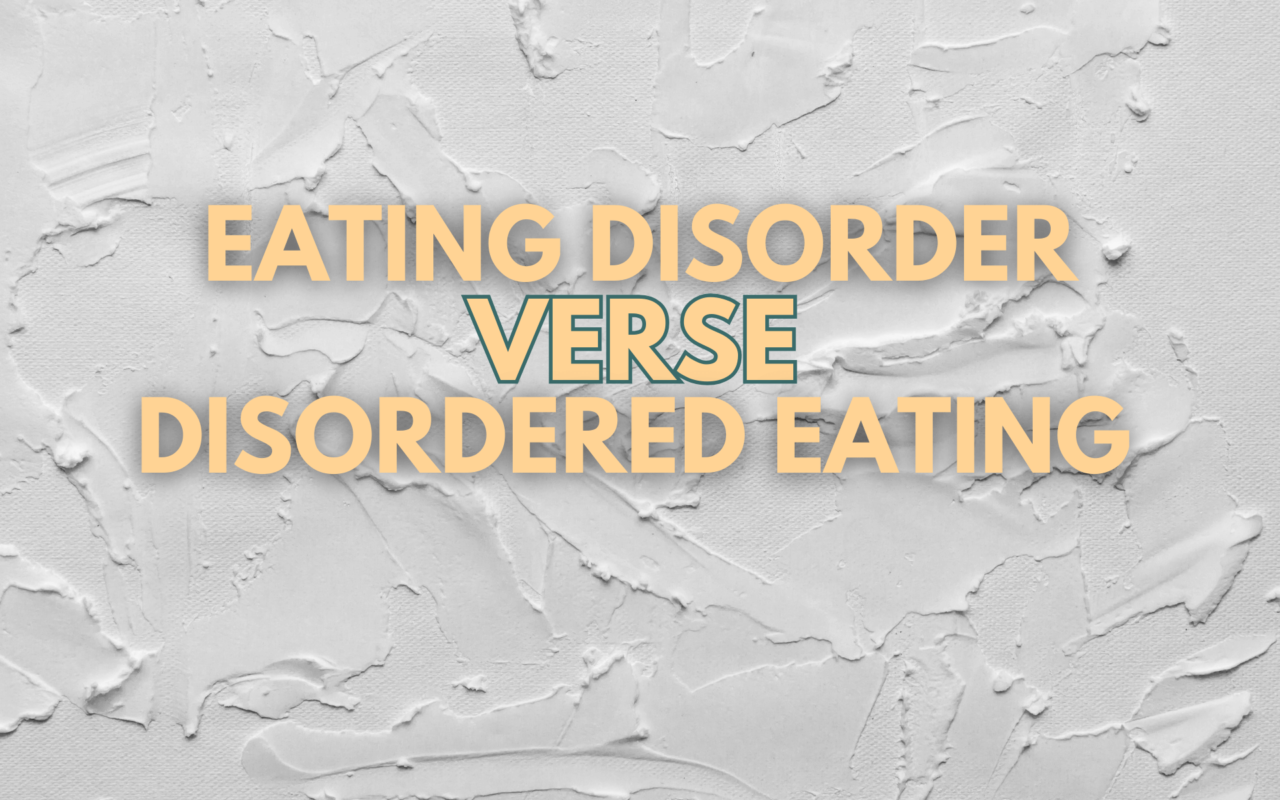Eating Disorders vs. Disordered Eating
Hello, everyone! Shailyn Waites here, excited to reconnect with you all today. I am the Founder of The Solace Flow and a therapist who has worked with clients facing disordered eating, eating disorders, and body dysmorphia for years.
In today’s blog post we will be uncovering the differences between eating disorders and disordered eating, understanding the warning signs, and discovering the pivotal role of seeking professional help from both counsellors and dietitians.
Eating Disorders vs. Disordered Eating:
Eating disorders are serious mental health conditions characterized by abnormal eating habits that negatively impact a person’s physical and mental well-being. These disorders often involve extreme emotions, attitudes, and behaviours surrounding food and weight. They can affect people of any age, gender, or background, and if left untreated, they can lead to severe health complications and even death.
Eating Disorders:
Eating disorders are severe mental health conditions characterized by persistent disturbances in eating behaviours and extreme preoccupations with body weight and shape.
Anorexia Nervosa: Individuals with anorexia typically have an intense fear of gaining weight and a distorted body image. They may severely restrict their food intake, engage in excessive exercise, and exhibit other behaviours aimed at controlling their weight.
Bulimia Nervosa: Bulimia nervosa is characterized by episodes of binge eating followed by compensatory behaviours, such as self-induced vomiting or misuse of laxatives.
Binge-Eating Disorder (BED): BED involves recurrent episodes of consuming large quantities of food in a short period, accompanied by a sense of loss of control and feelings of guilt or shame afterward.
Avoidant/Restrictive Food Intake Disorder (ARFID): ARFID is characterized by avoiding certain foods or restricting food intake due to sensory issues, fear of choking or vomiting, or a lack of interest in eating. This disorder can lead to significant nutritional deficiencies and impaired growth, particularly in children.
Other Specified Feeding or Eating Disorder (OSFED): OSFED encompasses a range of disordered eating patterns that do not meet the criteria for a specific eating disorder but still significantly impact an individual’s health and quality of life.
Disordered Eating:
So, maybe you’re thinking, “I don’t have a diagnosed eating disorder, but my relationship with food isn’t exactly smooth sailing.” That’s where disordered eating comes in. It’s like having a rocky relationship with food—chronic dieting, obsessing over calories, feeling guilty after eating something delicious. It’s not quite an eating disorder, but it’s still tough to deal with.
While disordered eating can be harmful, it does not typically involve the extreme and persistent behaviours seen in eating disorders. However, disordered eating patterns can sometimes progress into eating disorders if left unchecked.
Warning Signs:
Eating Disorders:
- Rapid Weight Loss or Gain: Significant and abrupt changes in body weight indicating potential eating disorder presence.
- Obsessive Calorie Counting: Tracking calorie intake obsessively, signifying an unhealthy relationship with food.
- Frequent and Extreme Dieting: Engaging in fad diets or extreme restrictions beyond healthy practices.
- Compulsive Exercise Patterns: Excessive and intense exercise routines, even in adverse conditions.
- Distorted Body Image: Perceiving the body inaccurately, often seeing oneself as overweight.
Disordered Eating:
- Irregular Eating Patterns: Erratic eating habits, such as skipping meals or inconsistent meal timing.
- Guilt or Shame Associated with Food: Feelings of guilt, shame, or anxiety surrounding food choices.
- Preoccupation with Body Weight or Shape: Excessive focus on achieving a particular body weight or shape.
- Changes in Social Behaviour: Social withdrawal from food-related events, avoidance of shared meals, or unusual eating behaviours in social settings.
The Importance of Seeking Professional Help:
Seeking professional help from both a counsellor and a dietitian is crucial for individuals struggling with eating disorders. In Canada, statistics reveal the severity of this issue, with eating disorders having the highest mortality rate of any mental illness. Counselling provides essential support for addressing underlying emotional issues, challenging harmful thought patterns, and developing coping strategies. Additionally, dietitians play a vital role in helping individuals establish healthier relationships with food, guiding them toward balanced nutrition and meal planning tailored to their specific needs. Together, these professionals form a comprehensive treatment team to address the complex challenges posed by eating disorders, offering hope and support on the journey to recovery.
I work with many lovely and extremely qualified dietitians to help support you on both nutrition and mental health, as a team.
If you are located in British Columbia or Ontario Canada and want to pursue counselling as an athlete in sport or transitioning out of your sport, click here to BOOK NOW: thesolaceflow.janeapp.com/
Shailyn Waites, RSW, MSW, EMDR
The Solace Flow


